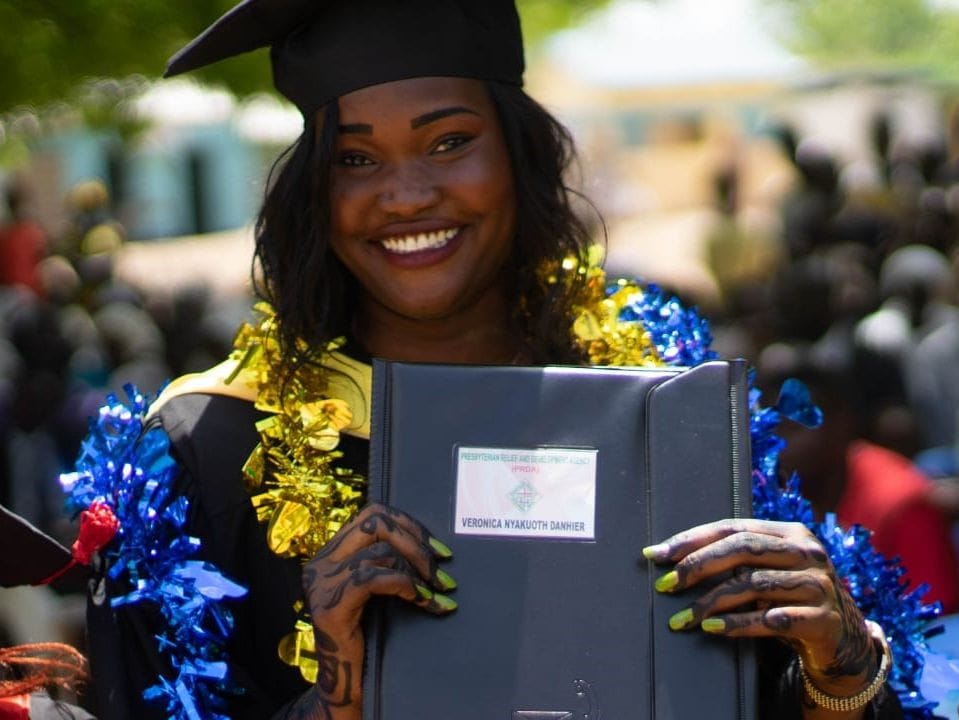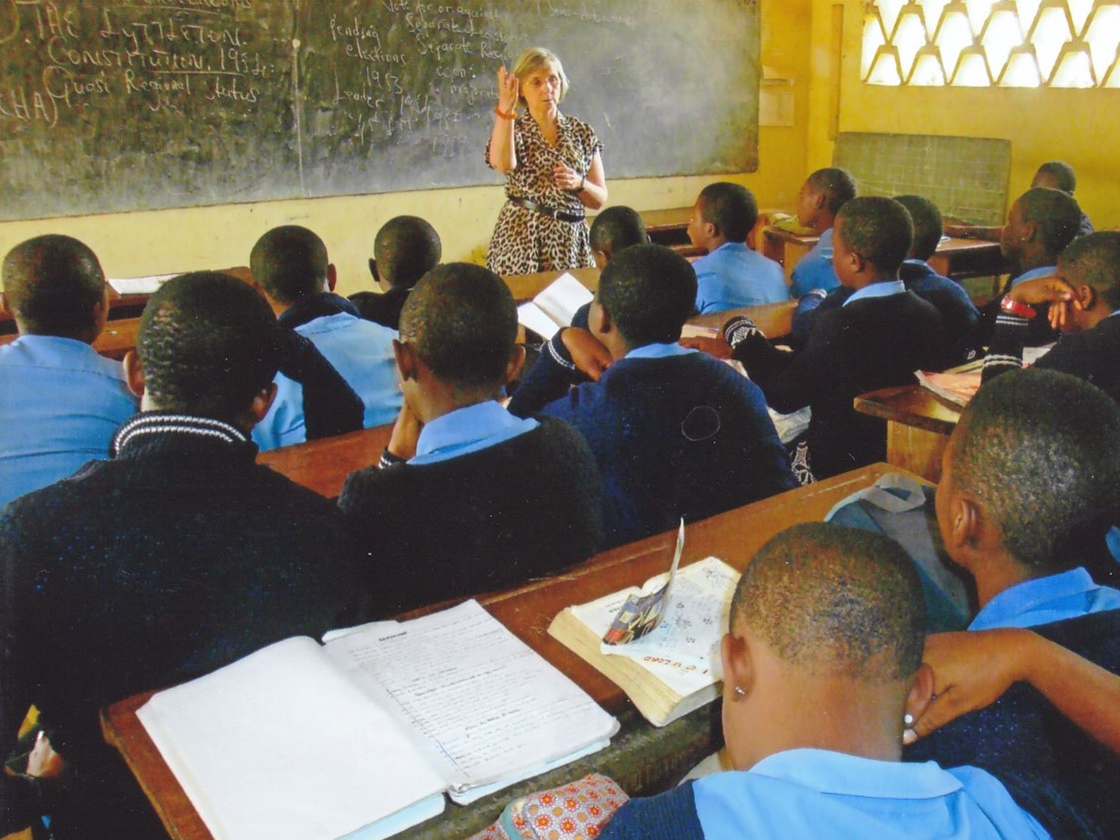"My passion is to help women so they can bring new life into the world," says one of the happy graduates of the midwifery school. The school enabled her to gain a professional qualification and a positive outlook for the future. This is not a matter of course for the South Sudanese woman, because civil war broke out in South Sudan in 2013.
Millions of people have had to flee because of this. Even after several peace agreements, the security situation remains unstable. Health care also suffers as a result. According to UNICEF figures, 62 out of every 1,000 children die in their first year of life. To reduce the extremely high maternal and infant mortality rates, well-trained midwives are urgently needed.
The midwifery school supported by Mission 21 is located in Lokichoggio, near a camp for displaced people in northern Kenya. It accepts young women from all regions and ethnic groups of South Sudan. In this way, it also provides a framework for the female students to work with other ethnic groups. In addition to the professional training, this is a special feature of the school, because the civil war led to enmity and violence between different ethnic groups. The students also receive psychosocial support and learn how to help traumatized people deal with their war experiences.
In addition to theory, the training also includes a practical part. This is considered particularly important by the students, because they attend a total of 50 births during their annual internships in a hospital. This allows them to apply their new knowledge directly. The students also go on many home visits and learn, for example, how to advise expectant mothers on family planning or how to support women living with HIV.
It is particularly gratifying that over 90% of the female students were able to complete their training this year. This is a remarkable achievement because the learning conditions are difficult. For example, there is no electricity most days. The female students also experienced great emotional stress. In 2017, a xenophobic mob attacked the school. The mob entered the premises, destroyed and stole materials, and tried to attack the students, who had to hide. One of the students recalls: "My lowest point was the Lokichoggio incident and the subsequent evacuation to Kakuma IDP camp. I lost everything I owned."
Despite all these difficulties, the students recommend the training: "The school has given me many valuable experiences and changed my life. It has made me a self-confident and proud midwife," says one of the newly graduated midwives. She and the others are ready to leave northern Kenya to return to South Sudan. The students know how badly their home country needs midwives. For example, one of the graduates says, "My studies are very important because we save the lives of mothers and newborns."
Text: Eva Sidler, Photo: Bernard O. Suwa






